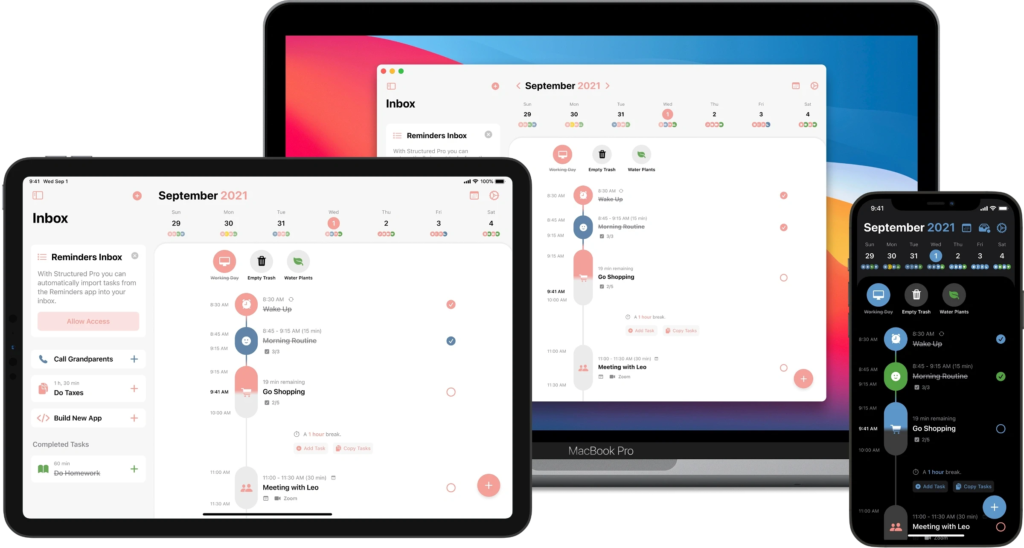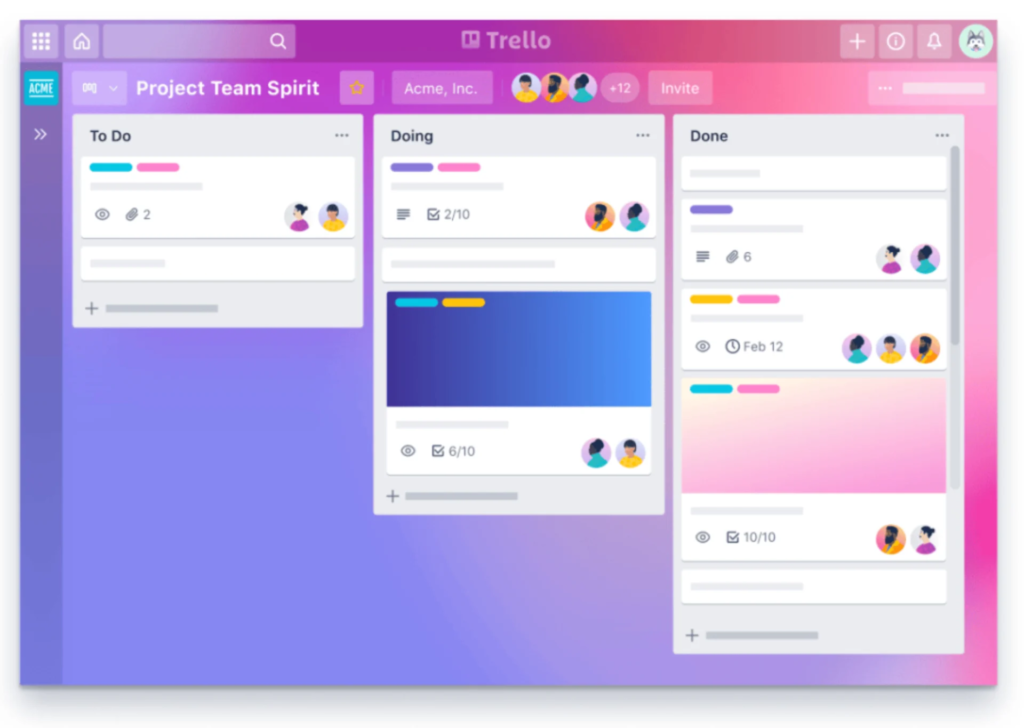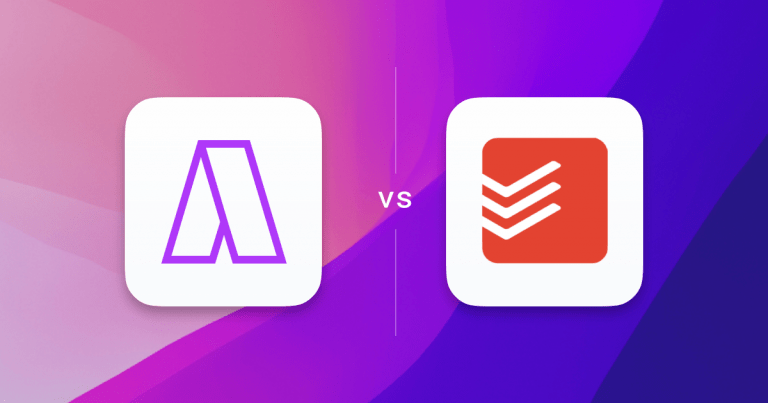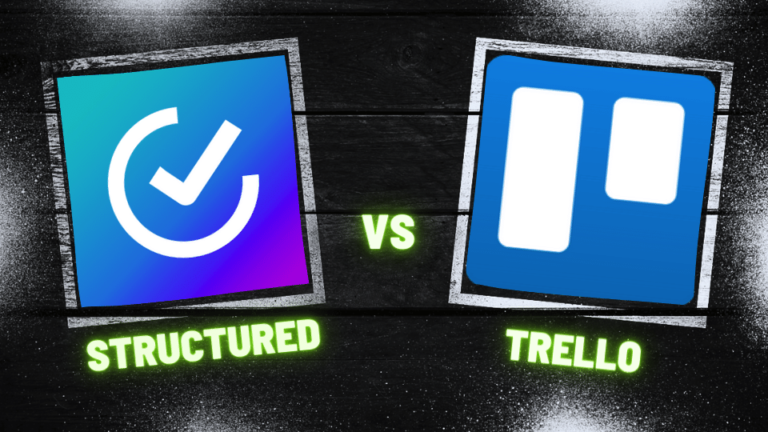What is Structured
Structured is a web-based daily planner application designed to enhance productivity and task management. It offers features like customizable task management, time tracking, goal setting, and progress tracking. The app is accessible across multiple platforms and integrates with other productivity tools. It’s suitable for individuals and teams aiming to efficiently manage tasks and projects. Structured’s user-friendly interface and cross-platform compatibility make it a comprehensive solution for daily and weekly planning.

Key Features of Structured
- Customizable Task Management: Structured allows users to tailor their task management experience. Users can set priorities, deadlines, and categorize tasks, enhancing organization and focus.
- Time Tracking: This feature helps users monitor how much time they spend on each task. It’s useful for productivity analysis and time management.
- Goal Setting: Users can set short-term and long-term goals, making it easier to track progress and stay motivated.
- Progress Tracking: Structured provides visual tools for tracking task and project progress, offering insights into productivity and areas for improvement.
- Cross-Platform Accessibility: The app is accessible across various devices, ensuring seamless task management and planning regardless of the user’s location or device.
- Integration with Other Tools: Structured integrates with other productivity tools, streamlining workflows and enhancing overall efficiency
What is Trello
It’s known for its easy-to-use Kanban board approach but also offers other views like timelines and calendars. Trello is great for visual organization and team collaboration, with features like customizable cards, labels, and notifications. However, it may be less feature-rich compared to some alternatives like ClickUp or Monday.com, particularly in areas like advanced reporting or analytics. Trello’s simplicity makes it accessible but might not suffice for complex project management needs.

Key Features of Trello
- Board Organization: Trello’s boards enable visual management of projects using lists and cards, enhancing visibility and tracking.
- Customizable Cards: Cards can be enhanced with descriptions, checklists, labels, and attachments, providing essential task details in one place.
- Team Collaboration: The platform supports real-time team collaboration, ensuring everyone is updated and in sync.
- Drag-and-Drop Interface: Its intuitive interface allows easy movement of cards between lists for updating priorities and workflow.
- Labels and Filters: These help in categorizing and organizing tasks, with customizable label colors and names.
- Notifications and Reminders: They keep users informed about due dates and important updates, ensuring task deadlines are met.
Structured vs Trello: Features
| Features | Structured | Trello |
|---|---|---|
| Integrations | Apple Calendar, Google Calendar, Outlook, Microsoft Exchange, Yahoo Calendar, and AOL Calendar | Trello integrates with several apps including Google Drive, Google Chat, Google Hangouts, Google Slides, Jira, Slack, GitHub, Dropbox, and Zendesk |
| Calendar | Yes | Yes. Trello offers a Calendar view which is available for Premium and Enterprise plans. |
| Platforms | macOS, iOS, Android | macOS, iOS, Android, Web, and Windows |
| Task Management | Task editing and creation, labels, tags, progress, prioriy and recurring tasks | Trello provides features like advanced checklists, labels for prioritization, and the ability to manage recurring tasks |
| Natural Language Processing | No | No |
| Time Blocking | Yes | While Trello itself does not have a native time blocking feature, it can be used in conjunction with time blocking techniques |
| Analytics | No | Trello offers basic task analytics, particularly when integrated with tools like Zapier and Google Sheets for data analysis. |
| Meeting Scheduler | No | No |
| Time Zones | No | Yes |
| Reminders | Yes | Yes |
| Customer Support | Average | Good |
| 1:1 User Onboarding | No | Not mentioned on their website |
| Pricing | A monthly subscription for $2.99, a yearly subscription for $9.99, and a lifetime subscription for $29.99, each providing full access to the app’s features. | Free Plan for individuals and small teams, Standard Plan at $5 per user/month (billed annually), Premium Plan at $10 per user/month (billed annually), and an Enterprise Plan for larger organizations at $17.50 per user/month (billed annually) |
Structured vs Trello: Pricing
Structured Pricing
Structured offers three pricing plans:
(i) Monthly Subscription: $2.99
(ii) Yearly Subscription: $9.99
(iii) Lifetime Subscription: $29.99
All these subscriptions provide access to the same features and unlimited use of the app, the free version of Structured allows basic planning and organization, but upgrading to one of these plans unlocks additional features
Trello Pricing
Trello offers several pricing plans:
(i) Free Plan: $0, suitable for individuals or small teams to organize projects.
(ii) Standard Plan: $5 per user/month (billed annually) or $6 monthly, for small teams needing work management and collaboration scaling.
(iii) Premium Plan: $10 per user/month (billed annually) or $12.50 monthly, for teams tracking multiple projects with various visualization tools.
(iv) Enterprise Plan: $17.50 per user/month (billed annually), providing connectivity, security, and controls for organizations.
Structured vs Trello: Reviews
Structured Review
Structured is a user-friendly daily planner app praised for its ability to integrate tasks with calendar entries, offering a streamlined approach to time management. Its simple interface and visual timeline are particularly appreciated, making it easy to organize and view daily activities. However, some users might find its features limited compared to more comprehensive productivity tools. Additionally, the absence of certain functionalities like natural language processing and advanced task analytics may be a drawback for users seeking more sophisticated planning capabilities.
Trello Review
Trello is highly regarded for its visual project management capabilities, particularly its use of the Kanban system. It’s appreciated for its ease of setup and the variety of views it offers, making it a favorite among both specialist and generalist users. Trello’s array of features, including multiple views, detailed card information, and numerous integrations, contribute to its effectiveness.
However, it’s noted that Trello has been slow in developing certain features. This aspect might affect users looking for a more feature-rich experience. Trello is considered suitable for small to medium-sized teams, as well as large teams, and it provides a great individual user experience too. Its simplicity and lower learning curve compared to tools like Notion make it easy to learn and implement.
Which One Should You Pick
Consider Structured if
- You Want a Visual Daily Planner: Structured is a good choice for those who prefer a visual representation of their tasks and calendar events, offering a clear, timeline-based view of daily activities.
- You Need Basic Task Management: If your requirements are centered around basic task organization without the need for advanced analytics or extensive features, Structured meets these needs effectively.
- You Prefer a Simplistic Interface: For users seeking an app with a straightforward, user-friendly interface, Structured’s minimalist design can be appealing, though it might lack the complexity desired by power users.
Consider Trello if
- You need a user-friendly project management tool: Trello is great for those who prefer a simple, visual approach to task and project management with its easy-to-use Kanban boards.
- Your team requires basic project management features: Trello is suitable for teams that need straightforward project management capabilities without the complexity of more advanced tools.
- You rely on integrations but don’t need extensive features: Trello offers a range of integrations through its Power-Ups, but it may not be as comprehensive as some other tools for users requiring advanced features.
Best Structured and Trello Alternatives
- Akiflow: Akiflow is a time management app offering time blocking, task scheduling, and integrations with various tools. It focuses on productivity and organization through a unified task and appointment interface.
Akiflow Price: $19 per month, paid annually - Microsoft To Do: Microsoft To Do is a task management app integrated with Office 365. It helps organize daily tasks, set reminders, and sync across devices. Ideal for both personal and professional use, it promotes productivity with features like shared lists and task prioritization. This app is especially beneficial for users within the Microsoft ecosystem.
Microsoft To Do Price: Free - Sunsama: Sunsama is a daily planner that helps professionals stay focused & productive by combining tasks, calendars, & emails. It offers features like guided planning, timeboxing, & automatic syncing.
Sunsama Price: $16 per month, annually.

Best Time Blocking Web and Desktop Apps, 2024
Explore the best time blocking apps of 2024! Discover how Akiflow, TickTick, Usemotion, Sunsama, Sortedapp, and TimeHero revolutionize productivity, offering unique features for professionals and students to manage tasks and enhance efficiency.

Improve Focus: 5 ADHD Productivity Tools & Calendar Apps for 2023
Discover five of the best apps and tools for those with ADHD, from note-taking apps to time-blocking platforms. Get ready to stay organised, motivated and on track with Akiflow’s essential guide.

The Top 3 Todoist Alternatives (In-Depth Review)
Over 25 million people now use Todoist to stay on track and plan their day. It has expanded rapidly and is now a widely used task manager with seamless integrations into other task and calendar managers like Akiflow. While Todoist is hugely popular among its wide user base, there are now a variety of Todoist […]

